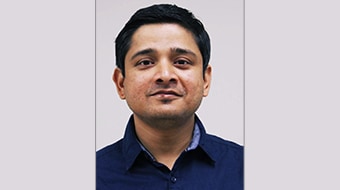The Supreme Court has wrapped up 6,844 cases since Dhananjaya Y Chandrachud took over as the new Chief Justice of India (CJI) on November 9, staying ahead of the curve by disposing of around one thousand more cases than those filed during the same period. As many as 5,898 cases were filed between November 9 and December 16, the last working day before the Supreme Court closed for winter vacation.
Of the total 6,844 cases disposed of over 29 working days, 2,511 cases were bail and transfer petitions, involving matters of personal liberty and family disputes, according to data released by the Supreme Court administration on Monday. There were 10 such days between November 9 and December 16 when the Supreme Court drew curtains on more than 300 cases.
Also Read | ‘No case is too small’: CJI Chandrachud after Rijiju’s ‘frivolous PILs’ remarks
On an average, the top court decided 236 cases everyday under the leadership of the new CJI. Of these, 90 cases were bail and transfer petitions.
The emphasis on quick disposal of bail and transfer petitions were underlined by the CJI on November 17, when he announced that cases involving personal liberty shall be prioritised in the new regime. Unveiling his plans as the CJI, justice Chandrachud had said every bench in the top court will hear 10 bail matters and 10 transfer petitions on each day of the week.
Transfer petition cases involve marital disputes where one of the spouses seeks shifting of the case to another place. Under the Constitution as well as civil and criminal procedure codes, only the Supreme Court has the power to transfer cases from one court to another, in the same state or otherwise.
Also Read | CJI Chandrachud on honour killings: ‘Hundreds of young people in India die because…’
Addressing lawyers present in his court hall on November 17, CJI Chandrachud had stressed that a decision has been taken to give precedence to the cases where petitioners have been inside jails, or fear imminent curtailment of liberty. “After 10 transfer petitions, all the benches shall hear 10 bail matters every day… those are the matters of personal liberty and we will prioritise them. All the courts will start their regular boards after hearing these 20 cases,” the CJI had added.
The data on disposal of cases closely follows a powerful statement made by a top court bench led by the CJI on personal liberty, construed by many as an answer to the criticism of the Supreme Court for taking up small cases of bail and marital disputes.
The Supreme Court exists to answer the cry of the citizens whose liberty has been taken away and thus, no case is small for the highest court of the land, CJI Chandrachud said on Friday, ordering the immediate release of a man sentenced to a total of 18 years in jail under nine separate cases of electricity theft in Uttar Pradesh.
“It is in the seemingly small and routine matters involving grievances of citizens that issues of moment, both in jurisprudential and constitutional terms, emerge…The right to personal liberty is a precious and inalienable right recognised by the Constitution. In attending to such grievances, the Supreme Court performs a plain constitutional duty, obligation and function; no more and no less,” the CJI-led bench said on December 16.
The CJI’s strong pitch came two days after Union law minister Kiren Rijiju said in Parliament that the Supreme Court should not hear bail pleas when pendency of cases is high.
“If the Supreme Court starts hearing bail applications or frivolous PILs (public interest litigations), it will cause lots of extra burden… More than 4 crore (40 million) cases are pending in trial courts where the government has a stake. We give money, support to create better infrastructure. But we have to ask the judiciary to ensure that only deserving people are given justice,” Rijiju said on Wednesday during a debate on a bill to rename the New Delhi International Arbitration Centre as the India International Arbitration Centre.
The CJI had a different view. On Friday, he said: “If the Supreme Court were not to interfere in the matters of personal liberty, what are we here for? We are here to answer the call of conscience and the cry for liberty of the citizens.”
CJI Chandrachud has remained a strong proponent of personal liberty during his seven-year tenure as a judge in the top court. While granting bail in November 2020 to Republic TV editor-in-chief Arnab Goswami in an alleged abetment of suicide case, he had held that “deprivation of liberty even for a single day is one day too many”, adding that courts across the country “must ensure that they continue to remain the first line of defence against the deprivation of the liberty of citizens”.
“Arrest is not meant to be and must not be used as a punitive tool because it results in one of the gravest possible consequences emanating from criminal law — the loss of personal liberty,” the judge had said in July 2022 while giving bail to Alt News co-founder Mohammed Zubair in connection with criminal cases registered against him for his tweets that allegedly offended religious sentiments and incited people.






